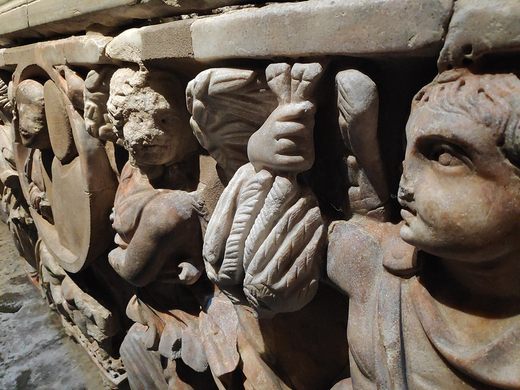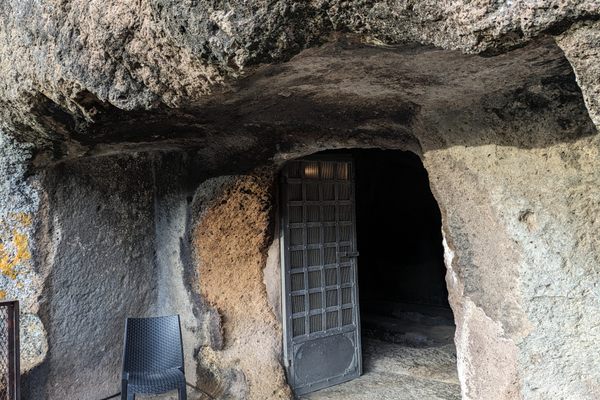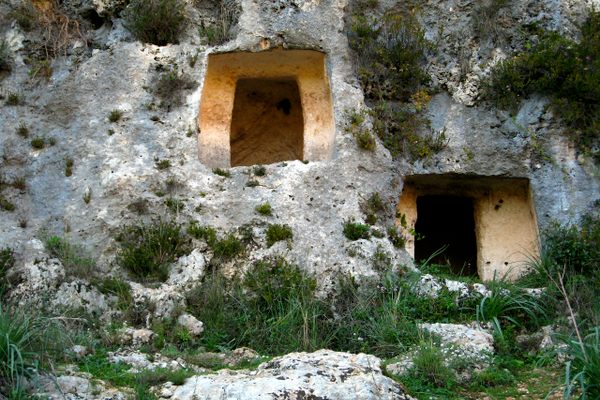AO Edited
Roman Tomb Köln-Weiden
The final resting place for a wealthy Roman family, this tomb might be the best preserved of its kind outside Italy.
In 1843, while digging a pit for his new business premises, a German wagoner found a large slab under a pile of debris. Assuming it might be the cover of a hidden treasure, he smashed it. What lay behind was indeed a treasure, but not of the kind he initially hoped for. After removing more rubble behind the slab, it soon became clear that this well-preserved Roman tomb was truly a unique find.
Ernst Friedrich Zwirner, lead architect of the cathedral at Cologne, managed to buy the property for the Prussian State. Contrary to the customs of his time, Zwirner did not plunder the tomb to the benefit of some Berlin museum, but instead reconstructed it in-situ for exhibition to the general public. It first opened in 1848, the year of the German Revolution.
After World War II, extensive restoration had become necessary and the tomb was closed to visitors. It was not until 2019 that, thanks to the activities of a non-profit association, it could be reopened, including a very small museum that depicts Roman activity in the region.
The subterranean burial chamber (hypogaeum) dates back to the second century. It is a stone-modeled version of a triclinium, a Roman dining room, complete with dining couches and cane chairs. The noble Roman man took his meal reclined on a couch, while his wife ate her meal sitting at the foot of the man. Stone furniture of this type is unique for the northern provinces. There are also three perfectly preserved portrait busts of the (otherwise unknown) tomb owners. Other niches in the walls show where urns or grave goods might have been placed.
Most impressive is the sarcophagus: made out of Carrara marble and presumably sculptured in Rome, it is a testimony of Roman patrician’s wealth in Germania Inferior. Based on art historical comparisons, it has been dated to the end of the third century and was originally not part of the burial chamber, but placed in a (now lost) above-ground structure. This assuming is consistent with the fact, that it could not have entered the underground chamber through the access, due to its size. The sarcophagus most probably fell down when the vault collapsed and shattered into pieces. At this place, it was reassembled several centuries later.
Know Before You Go
The tomb is easilly accessible via public transport: tram line 1, headed to Köln-Weiden, the name of the stop is Weiden Römergrab.
Opening times are Thursday, 10 a.m. to 1 p.m.; Saturday, 10 a.m. to 1 p.m.; Sunday, 2 p.m. to 5 p.m.
















Follow us on Twitter to get the latest on the world's hidden wonders.
Like us on Facebook to get the latest on the world's hidden wonders.
Follow us on Twitter Like us on Facebook